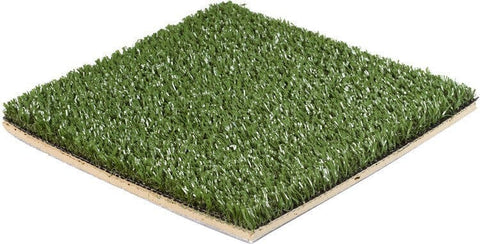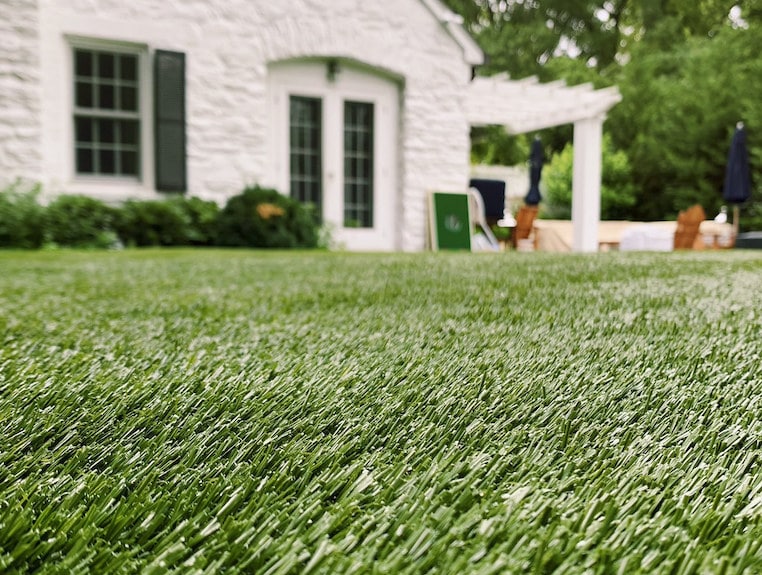Explore the Environmental Benefits of Opting for Artificial Grass Solutions
The adoption of artificial turf remedies provides an engaging opportunity to address pressing ecological obstacles. By significantly decreasing water use and minimizing the application of harmful chemicals, these options not only promote sustainable landscaping but additionally secure regional ecological communities. The lower carbon impact associated with decreased maintenance activities adds to an extra lasting method to land administration. The effects of these advantages expand past mere conservation initiatives, raising inquiries regarding their lasting effect on habitat preservation and general eco-friendly balance. Checking out these measurements discloses a complex interaction worth taking into consideration.
Water Preservation Conveniences
One of the most considerable benefits of synthetic grass is its capability to save water. Standard yard lawns call for significant watering, especially in locations vulnerable to dry spell or water constraints. On the other hand, synthetic grass does not need watering, dramatically reducing the general demand for water resources. This feature is particularly useful in dry regions where water deficiency is a pressing concern.
By removing the requirement for regular watering, synthetic grass adds to lasting landscape practices and assists mitigate the environmental influence of excessive water intake. Furthermore, the conservation of water encompasses the reduction of overflow, which can lead to dirt erosion and river air pollution.
Furthermore, the setup of man-made turf allows communities and house owners to designate water sources more efficiently, focusing on necessary uses such as alcohol consumption water and farming. The change in the direction of artificial grass not just advertises responsible water usage however likewise lines up with wider environmental goals focused on protecting natural deposits.
As communities increasingly prioritize sustainability, the water preservation advantages of synthetic lawn provide an engaging case for its adoption in property and industrial landscape design tasks.
Reduced Chemical Use
The transition to synthetic grass substantially reduces the reliance on chemical treatments commonly utilized in natural grass upkeep. Standard grass monitoring typically entails the application of herbicides, chemicals, and fertilizers to advertise growth and control parasites. These chemicals can present threats to human health and wellness, regional wild animals, and the setting, adding to dirt and water contamination.
In contrast, artificial turf gets rid of the requirement for these harmful compounds. By reducing the launch of artificial compounds into the community, fabricated turf promotes much healthier soil and water systems.
Additionally, the lack of chemical runoff related to synthetic lawn installments helps shield local waterways from air pollution, supporting marine life and maintaining biodiversity. Artificial turf companies phoenix. As areas significantly focus on sustainable practices, choosing synthetic grass presents a viable service that lines up with environmental conservation goals. Through this shift, homeowner can take pleasure in lush green spaces without jeopardizing environmental wellness, paving the method for a much more lasting future
Lower Carbon Footprint

Moreover, the installation of synthetic grass can cause significant water conservation. All-natural lawns need significant quantities of water for watering, which not only includes in the carbon impact connected with water removal and treatment however additionally stress local water resources. In comparison, synthetic grass requires minimal maintenance, calling for no watering, thereby considerably minimizing water usage and its connected power expenses.
Additionally, the durability of synthetic grass adds to its reduced carbon impact. With a life expectancy of approximately 15 years or more, the requirement for regular substitutes is lessened, causing less waste and lower power consumption in production and taking care of traditional turf options. Generally, artificial turf presents a sustainable alternative for ecologically conscious landscaping.
Habitat Conservation
Environment preservation is a crucial factor to consider in the discussion over landscaping choices, particularly when contrasting synthetic grass to all-natural grass. All-natural lawn yards frequently require extensive maintenance, including the usage of pesticides, herbicides, and plant foods, which can detrimentally influence regional environments. These chemicals can seep right into the soil and rivers, damaging native flora and animals and interfering with regional habitats.
In contrast, synthetic grass offers a chance to lower the environmental footprint of landscape design. By going with artificial turf, homeowners can decrease the interruption of natural habitats related to conventional grass care methods. Synthetic grass eliminates the demand for harmful chemicals, thereby securing neighboring wildlife and maintaining the additional hints honesty of surrounding environments. The installation of synthetic turf can lead to the conversion of previous grass areas into more biodiverse landscapes, such as pollinator gardens or native plant areas, which can sustain neighborhood wildlife.
Ultimately, the shift to fabricated lawn not just preserves water and reduces maintenance efforts but additionally fosters a more harmonious partnership in between human tasks and the natural surroundings, advertising habitat conservation at the same time.
Long-Term Sustainability
Long-term sustainability is a critical consider examining the advantages of man-made grass over conventional yard lawns. One of the most significant advantages of artificial lawn is its durability; it can last up to 15-20 years with marginal upkeep, whereas all-natural turf requires regular reseeding and substitute. This durability reduces the demand for continuous sources, such as water, plant foods, and pesticides, which are vital for maintaining a healthy and balanced yard lawn.
Additionally, artificial grass contributes to a decrease in Recommended Reading carbon exhausts connected with lawn treatment tools. Conventional lawns often require gas-powered mowers, leaners, and blowers, all of which add to air pollution. Artificial turf companies phoenix. In contrast, fabricated lawn eliminates the requirement for such tools, promoting a cleaner atmosphere
Furthermore, the manufacturing of synthetic grass significantly makes use of recycled products, enhancing its sustainability profile. As producers adopt green practices, the environmental impact of synthetic grass proceeds to lessen.

Conclusion
The adoption of synthetic grass remedies provides substantial ecological benefits, consisting of significant water conservation, minimized dependence on unsafe chemicals, and a reduced carbon footprint. Artificial lawn aids straight from the source in preserving natural habitats by reducing land disruption and advertising long-lasting sustainability via the usage of durable materials. Jointly, these aspects emphasize the capacity of synthetic grass to contribute favorably to environmental health and offer a sensible choice to typical landscape design practices in an increasingly resource-conscious world.
In comparison, man-made turf does not require watering, dramatically decreasing the overall need for water resources. By minimizing the launch of artificial substances into the ecological community, man-made turf promotes much healthier soil and water systems.
In addition, the setup of artificial turf can result in substantial water conservation. In comparison, synthetic grass needs marginal maintenance, calling for no watering, consequently dramatically decreasing water use and its associated power costs.

Comments on “Upgrade Your Outdoor Space with Arizona Artificial Turf for a Vibrant Green Look”